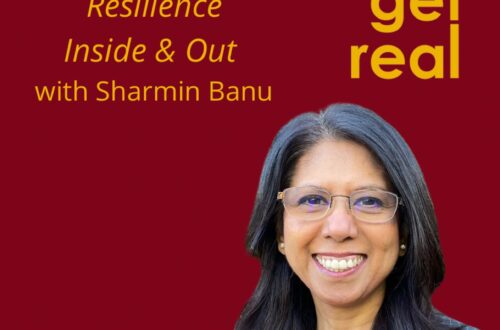
Are Disagreements Hard For You? EQ Analysis Can Help
A very passionate, competent, and committed gentleman, Nathan was a Product leader at a medium-size cutting edge tech company. Disagreements, differences in opinions, were a regular part of his job, yet it was hard for him. It ended up being a personal attack that costed his relationships. He felt awful. He wanted to establish what he felt right for the organization, but he didn’t mean to hurt anyone. Disagreements came at a high price for him.
Nathan believed that there were only two options: not to raise his concerns and maintain the harmony or fight for his point and accept the consequence. Either of the choices sucked. As we started working on this, we did an EQ assessment and a couple of specific scenario analyses to get to the root cause of his challenge.
EQ Assessment
Nathan’s EQ assessment revealed that his emotional vitality was relatively low. Emotional vitality or Joy is the energy that helps us keep moving through life’s adversities. He tended to work alone and had a hard time building alliance.
From his stories, I learned that he had a limiting belief that disagreements meant hurting relationships. He was emotionally vested in his opinion. It clouded his empathy. He had a very rigid black and white view of the other person’s intention/competency.
Conflict Scenario Analysis
- Why was he disagreeing?
He had a better idea than the proposed one (which was proven correct on many occasions). - Why was his idea better?
It would help achieve the organization’s goals more efficiently and create a more sound solution. - What was his emotion during this disagreement time?
He felt frustrated because the other person had a pattern of such ideas causing him to question his intention and competency. - Why was the other person’s competency his concern?
The organization was hurting by such people in important roles. - Who had the power in the decision making?
The team and their management chain up to the CEO.
Results
Through these analyses, Nathan learned about his emotional reactions, regulating them, and building an alliance with his management team.
Emotional Awareness
He realized how his emotion was informing him and, at the same time, made him less effective in delivering his point. Limiting assumptions and beliefs created an emotional burden for him. The analysis made sense to him when we spoke. But his challenge was that he got hijacked by his heightened emotions during the meetings. Over the next few weeks, he took the exercise to scan his emotional state several times during the day. We designed a quick 1-min slow breathing routine that was easy to practice. Within 2-3 weeks, he started noticing a positive shift in his emotional awareness and self-regulation.
Organizational Awareness
Nathan also learned that he didn’t have to fight the battle alone. He could leverage his team and his management and make it an organizational concern rather than his own. After a month or two, Nathan had an opportunity to meet his CEO and direct reports on an issue he brought to their attention. Unlike other times, he was more objective about the situation. He managed to notice his emotional reactions and regulate them without getting hooked. The meeting went well; the CEO asked followup questions and asked for his advice. A few days later, he was offered a promotion.
Personal Happiness
It was quite a miracle that Nathan got this result in such a short period. He later told me that this process helped him realize that he used to be harder on himself. This awareness enabled him further to examine his life with a more compassionate lens. He incorporated some joy-giving activities like reconnecting with his friends into his weekly routine. I couldn’t be happier for him.
Related articles:
Why EQ Matters And How To Be Better At It
Organization Politics – How We See It Can Change the Meaning
Did you enjoy this article? Sign up to deliver such articles weekly to your inbox. Ready to try our coaching? Contact us for a 30-min complimentary video/phone session with coach Sharmin.
Feature Image by Alexas_Fotos from Pixabay




